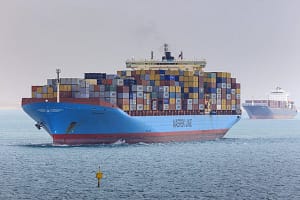BRICS and MINTs are all very well – but when it comes to starting out, businesses should begin with Europe

Who do we export more to: the BRIC countries or Ireland?
Or who should we export more to: the BRICs, Ireland – or even the MINTs?
Not sure? We’re not surprised. There was a time when British businesses were derided for exporting more to Ireland alone than to all the far-flung BRICs (Brazil, Russia, India and China) combined. So it came as a nice surprise when Nick Clegg began praising our links with Ireland back in 2012 – implying that, actually, there were other markets ripe for opportunity that didn’t have to belong to a four letter acronym.
And then came along the MINTs – aka Mexico, Indonesia, Nigeria and Turkey. They’re tipped as the new crop of emerging markets waiting for British businesses to sweep in and sweep up. So are our European neighbours once again taking a back seat?
And as a British SME eager to begin your exporting journey, where should you set your sites on?
“Europe,” says Lesley Batchelor, director general of the Institute of Export (IoE). “Starting out as a new business you should always go to a market somewhere in Europe. Start small, learn how to do it, and then you can get going.”
Peter Bishop, director of the London Chamber of Commerce, agrees: “We now export more to BRIC countries combined than we do to Ireland, yet the 28 member states of the European Union are more of a free-trade area than ever been before.”
Both Batchelor and Bishop talk of the UK having “lost sight” of the market that’s on its doorstep, with European countries (both EU and non-EU), making the perfect “starter market” for any business looking to trade internationally for the first time.
So how do you break the EU?
How to enter the European starter market
Praveen Vijh co-founded the Eat Natural range of cereal bars and cereals in 1997 from Essex. A year later the business was exporting and selling in The Netherlands – not the UK. “We tried selling Eat Natural cereal bars to the UK and thought it would be easy, but it wasn’t. So we went to Europe. We exhibited at a big food exhibition in Germany called Anuga and received our first order from a Dutch supermarket.”
For Vijh, selling to the Netherlands was as easy as selling to Norwood. “Our customer, the supermarket, helped us a lot with the paperwork. As experienced importers they told what we needed – which was basically a couple of certificates for quality control. The whole thing was, and still is, remarkably easy.”
Eat Natural now exports to 40 countries worldwide. Europe is, and always will be, says Vijh, their biggest market.
Exporting to the EU keeps paperwork much simpler than going further afield, says Bishop. “You don’t need documents other than customs documents to get your goods into the EU and there is a harmonisation of documents. So if you’re a soft toys manufacturer and you comply with UK regulations, than you automatically comply with the 28 member states”.
This article is brought to you in partnership with UPS
Researching your market
Mitchell & Cooper is a supplier of catering and bar equipment. Co-founder Guy Cooper describes his experience of entering new foreign markets: “We began by researching similar companies and spotting gaps in their ranges, before contacting them to see whether they would include our products in their range”. It worked. The business now exports across most of the EU as well as the US, Australia, Russia and China.
“Culturally we’re very different to, say, Africans and American,” says Batchelor. “How they buy and how we buy would need to be carefully researched – and it’s very hard to do that research with a country outside of Europe.”
Guka Tavberidze, founder and CEO of the smoothie brand SaVse, is at the very beginning of his exporting adventure – having begun exporting to Latvia, Norway and France in January this year.
“We began by researching the markets as best we could. What were market conditions like in terms of competitors and infrastructure, for example?”
Tavberidze says the business is now approached weekly by foreign companies eager to take their product on in their respective countries – but they’re careful who they partner with. “The key is to identify the right opportunity when it presents itself and not to jump at every offer,” says Tavberidze.
Choosing your partner
That’s where the pros come in. “Building a customer base in a new region requires expert market knowledge,” explains Paul Marks, Business Development Director, UPS. “As a trusted logistics partner, UPS provides the necessary consultancy and tailored logistics solutions to access new markets, navigate tricky regulation and achieve growth objectives.”
All of which makes it even easier to begin your exporting journey to the EU, safe in the knowledge that you’ve got an experienced pair of hands to guide you.
So now the only question left is: how many countries will you set your sights on in the next year? The EU is your oyster.
NOW READ: Eight amazing ways exporting can make your growth explode









Leave a Comment